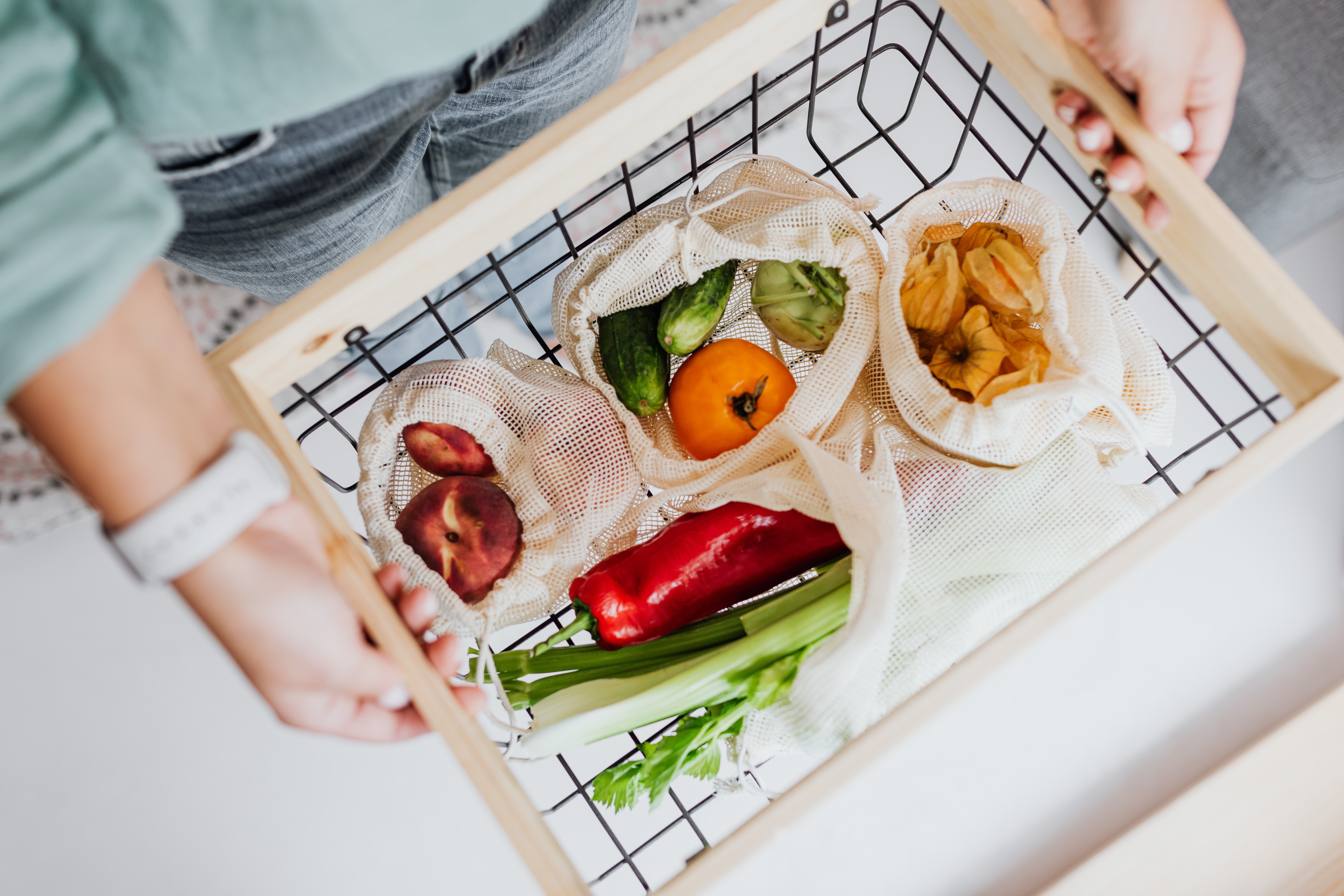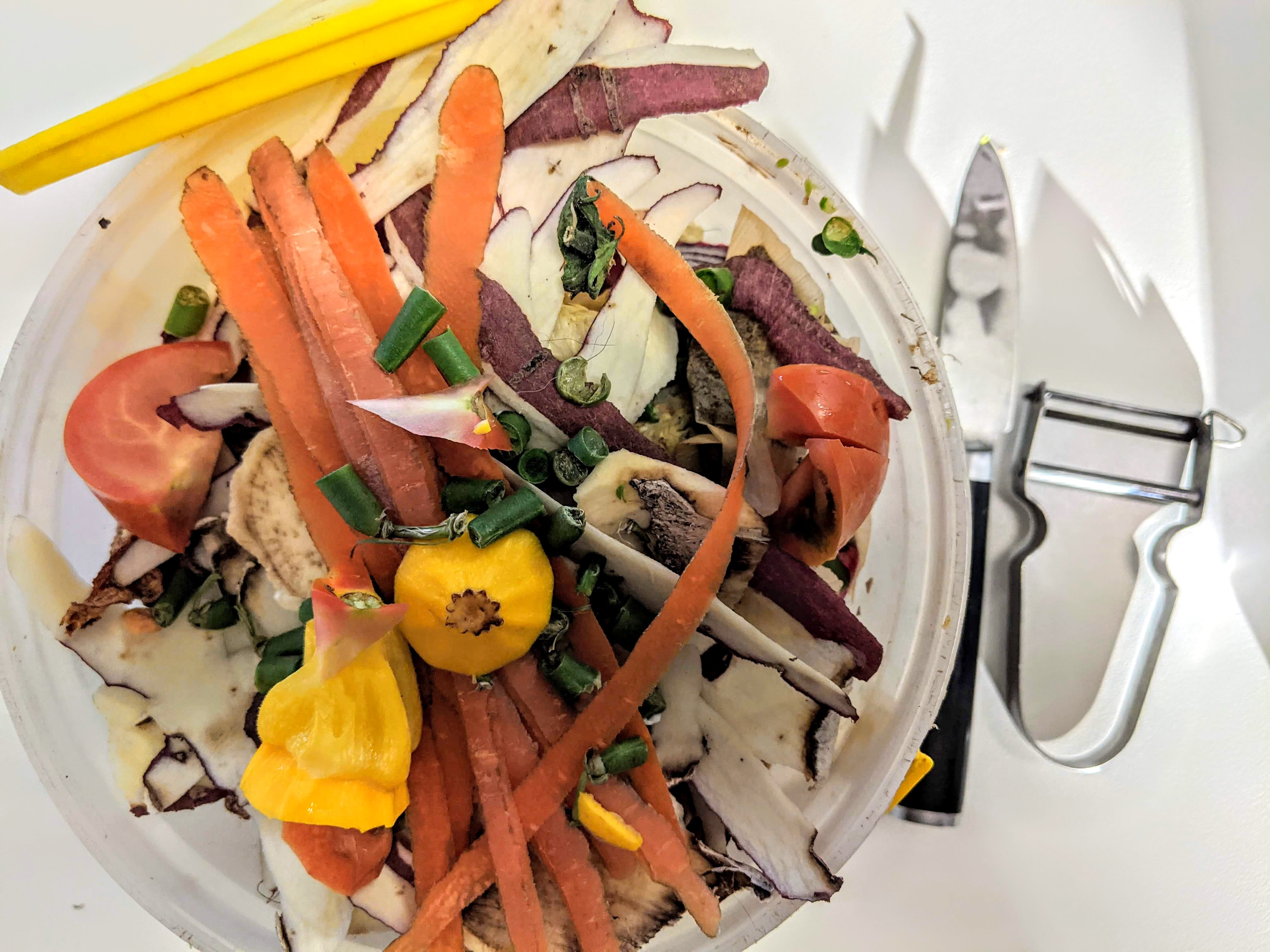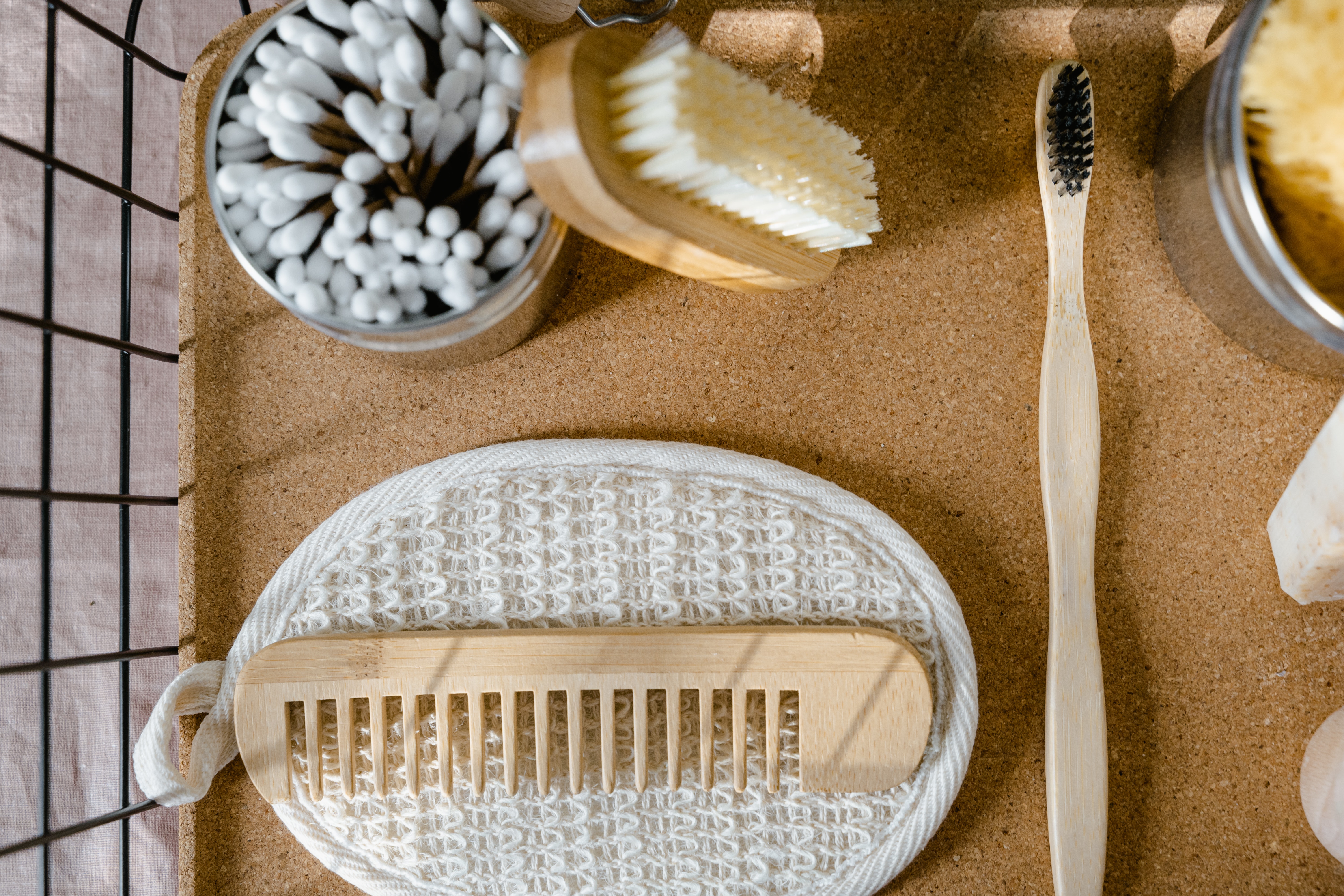Have you noticed how so many household products are disposable? Single-use wipes, paper towels, and plastic sponges, plus, pretty much everything comes in a plastic bottle. Cleaning and home products are also major sources of urban air pollution, releasing volatile organic compounds (VOCs) that can cause breathing problems and even heart disease.
That’s scary stuff! And while common products can be harmful to our health and the environment, consumers are now sustainability savvy and base their purchasing decisions on the environmental impact of the product.
For example, the Pew Research Center found 60% of Americans feel climate change is a major concern, and 64% feel protecting the environment is a top priority. We agree! We know buying eco-friendly home products alone won’t stop global warming; every little action helps.
Since so many household products come in disposable packaging, 18% of the waste in municipal landfills is just plastic. Imagine how much less plastic will end up in the dump if we switch from single-use plastic goods to sustainable living products with packaging designed to be refilled or composted. And since only 9% of plastics are recycled to begin with, there’s huge potential to prevent environmental harm by reducing plastic waste.
If you’ve already found eco-friendly places to shop and want to increase your positive impact, check out our guide to eco-friendly apps for additional ways to live a more sustainable life.
What are Sustainable Home Products?
You might be wondering, what makes a product sustainable anyway? When shopping for eco-friendly home cleaning products, it’s good to look for:
- the percentage of recycled content in the packaging (the higher, the better)
- glass or metal containers that can be easily recycled
- biodegradable materials
- paper made from post-consumer waste
- cleaning tablets that mix with water to refill existing products
We also recommend looking for items that are clearly labeled and free of parabens, sulfates, toxic chemicals, and unnecessary additives. This part can be tricky since benign chemicals can have intimidating names. Fortunately, the EPA’s Safer Chemical Ingredients List can steer us in the right direction.
Where the product was made is just at important as what it contains — that’s why we suggest shopping with brands that are transparent about where their products are manufactured and the working conditions, pay, and benefits for the people who make them. And bonus points go to any certified carbon-neutral company that offers carbon offset shipping!
What are the Benefits of Eco-Friendly Products?
There are a number of benefits to using eco-friendly home products. For instance, you’ll spend less money over time when you stop using single-use items and start using eco-friendly home products designed specifically for reuse. Never buy another plastic bottle when you select cleaning tablets to refill your existing containers. You’ll also be exposed to fewer potentially toxic chemicals in your home and expose the environment to fewer chemicals, plastics, and waste.
Sustainable Grocery Shopping
Grocery shopping can be a real challenge for the eco-conscious shopper! It’s hard to find zero-waste grocery items. And depending on where you live, commercial grocery stores still provide plastic bags in the produce aisle and at checkout, while others have banned them outright. Either way, it’s better to BYOB (bring your own bags).

If there isn’t a zero waste online grocery store serving your area, or you just prefer in-person shopping, here’s a rundown of our fav items for a sustainable supermarket run. And since 80% of the plastic in the ocean got there by escaping landfills or being washed down the drain, keeping the kitchen plastic-free just makes sense.
Buying in bulk
Here’s a tip that will save you money and reduce the amount of packaging sneaking into your home — buying kitchen staples at the bulk food store. If you’re a home baker, picking up your flour, sugar, and even baking soda in bulk means you’ll have fewer trips to the baking aisle and less packaging to throw away. Are you still buying your spices in those little plastic pouches? You’ll never have to compromise for cumin again when you discover the seasoning selection in the bulk bins.
Reusable bulk food bags
Bringing your own bag to the bulk food store was a COVID-19 no-no. Thankfully, reusables are back and even encouraged in the bulk section. COLONY Co., Net Zero Co., and Public Goods have great options for bulk bags that are sustainable, reusable, and compostable once they’re out of commission.
Reusable shopping bags
Check out CleverMade for insulated totes for your frozen foods, BagPodz for a tidy little bag dispenser, and BeeGreen for larger, sturdy shopping bags. Or, you can always just repurpose the plastic bags you already have next time you go shopping. Most grocery chains sell reusable bags in stores now, too, so don’t feel bad if you forget to bring some from home!
Reusable produce bags
Plastic film bags are ubiquitous in the produce aisle, but they can only be recycled if they are #2 or #4 plastic. And even then, because they’re a challenge to recycle properly, local recycling programs might not bother trying to process these baneful baggies. So, instead of wrapping your carefully selected broccoli crowns in non-renewable resources, you can always pick up some multi-use bags. Lotus Sustainables, Kikkerland, and Public Goods all offer washable, 100% cotton produce bags to keep your fruits and vegetables plastic free.
Eco-Friendly Kitchen Products
Our kitchens can be a substantial source of waste that can contribute to excess production, consumption, and, ultimately, greenhouse gasses. From food packaging and storage (hello cling wrap and plastic bags) to food prep and cleaning (chemical cleansers and single-use plastic packaging), even pet food and treats (few options for sustainable dog products or sustainable dog food brands), sustainability in the kitchen is a challenge! If you want to reduce your home’s carbon footprint, try swapping non-renewables for these green living products.
Reusable food wraps
Replacing plastic wrap with a sustainable alternative is one of the simplest ways to live greener. Food wraps are cotton shapes coated in beeswax that can cover bowls, bread, cheese, fruit — you name it. There are many options for food wraps, but some of our favorites are Bee’s Wrap, LilyBee Wrap, Abeego, and BeeBAGZ — they’re adorable too!
Reusable drinking straws
Plastic straws aren’t as common as they once were, with many restaurants and coffee shops moving to compostable options. If you want to join this eco-trend, bringing your own reusable straw when you grab an iced coffee is an easy way to be more eco-friendly. Try one of these collapsible straws for when you’re sipping on the go: JANDEL, Yuan Ou, Labakihah, or Pixnor. If you just want some for around-the-house hydration, Ecotribe has a great stainless steel set.
Countertop compost bin
Does your municipality have a composting program? If so, you’re in luck! Composting helps reduce greenhouse gas emissions, and as the United Nations Environment Programme found, food loss and waste are responsible for 8-10% of global greenhouse gas emissions.
Keeping the compost bin on the counter helps build the habit of chucking biodegradable items in it rather than the trash. But that also means it can’t be an eyesore. We love the compost bins from Prep & Savour, Oxo, and World Market for their countertop appeal. If function over fashion is more your speed, you might like options from Minky or Full Circle.

Sustainable Hygiene Products
Green-minded shoppers can find eco-friendly places to shop for zero-waste products for their personal hygiene items. There are lots of (non-gross) ways to reduce your environmental impact, even in the bathroom.
Recycled and/or biodegradable toothbrushes
Say ‘no thank you’ to the goodie bag from the dentist! Once you switch to biodegradable toothbrushes, you won’t want to go back to plastic. Many have handles with replaceable, compostable heads, like Nada and Mintly. Others are solid bamboo and can be composted, like these Public Goods brushes. Finally, Sustainable Tomorrow has a bamboo electric toothbrush with compostable heads.
Biodegradable dental floss
That’s right — even dental floss has an eco alternative. Instead of plastic thread, sustainable dental floss is made from biodegradable materials and can be used with a refillable glass dispenser. We love Life UnPacked’s corn-derived floss, Ola Bamboo, and By Humankind’s silk floss.
Recycled toilet paper
It’s not what you think! Recycled toilet paper is made from 100% post-consumer waste… mostly recycled paper and toilet rolls. Since most of us have our TP preferences, there are many options to try, like the Rollieco, Cashmere EnviroCare, and Cascades Fluff® Enviro.
Reusable makeup remover pads
Single-use cotton balls and pads can easily be replaced with machine-washable, reusable, and sustainable options. Check out Seek Bamboo, LastObject, and Typology for green living products that will make taking off your makeup eco-friendly too.
Reusable cotton swabs
Just like single-use cotton pads, cotton swabs can be swapped out for a greener alternative (especially since some swabs still have a plastic stick). Most of these come in a little case, making them great for travel — and much harder to misplace! LastSwab by LastObject is a favorite. ProEcolo, Plantish, and La Looma swabs come in sets, so you can always find the right swab for the job.

Sustainable laundry solutions
Some of the best sustainable DTC brands are in the laundry business. There’s a plethora of products to make your clothing squeaky clean without all the harsh chemicals and waste.
Wool dryer balls
Dryer balls are great — not only do they replace single-use dryer sheets with a more sustainable option, but they also dry clothes up to 50% faster, saving you money on your energy bill. Most are made of 100% wool, so you can just compost them when they get worn out. Check out Smart Sheep, Coyuchi, or Friendsheep. For vegan launderers, Dragonfly dryer balls are made of organic bamboo.
Eco-friendly laundry detergent
Concentrated detergent strips like Tru Earth and EcoRoots are an easy way to reduce plastic and water consumption in the laundry room. They’re bottle-free and solid, so no water is used to make them. If you prefer, there are also washing pods from Dropps and Blueland. And finally, if you love liquid detergent, ECOS and Seventh Generation are some of the best sustainable household products.
Eco-Friendly Home Cleaning Products
Honestly, you can clean most household things with a bit of dilute vinegar, but we know not everyone loves to smell acetic acid all day. Let’s meet some eco-friendly home cleaning products.
Biodegradable scrubbers and sponges
Most kitchen sponges are made of plastics like polyurethane and polyester. Since there’s already plastic in the stomach of 90% of seabirds, it’s important we avoid polluting more microplastics into the water supply. We can switch out the sponges for eco-alternatives like the Etee or Clean Planetware loofah scrubbers, the Blueland cellulose scrub sponge, and Zero Waste Club’s coconut scourers. So many green choices!
Organic cleaning sprays
If you’re not going to do kitchen chemistry to make your own cleaners (fine!), there are good, eco-friendly options on the market. Zero Waste Club’s cleaning concentrate, Dr. Bronner’s Sal Suds, and Clean Cult’s all-purpose cleaner are awesome for refilling your existing bottles. Just dilute the concentrate with water, and you’re ready to go. Then, there are powder options like Bon Ami Powder Cleanser, which is biodegradable and has no harsh chemicals (mostly baking soda and limestone). Finally, if you’re cleaning pet stains and odors, Biokleen uses enzyme cultures instead of harsh chemicals, so you and your pets can breathe easily.



